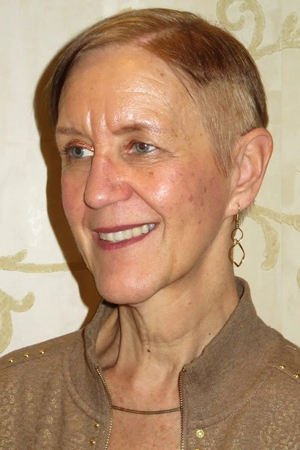Safe Communities (formerly SafeChurch)
Linda Crockett
Child sexual abuse is fundamentally about power and the abuse of power. But we must also come to terms with the fact that adults not using their power to prevent child sexual abuse—to create the conditions where sexual violence against children is unacceptable—is also an abuse of power. If we are to end child sexual abuse, we, as adults, must shift our culture from one of denial and passivity to embrace our collective responsibility for the well-being of children in our communities.
The Challenge: The root causes of child sexual abuse are complex and deeply embedded within our culture. Too often the power and reputation of our institutions—including institutions of faith—are privileged over the safety of children, creating the conditions that allow for child sexual abuse to flourish.
The Solution: Mobilize a national, multi-denominational, faith-based movement to end child sexual abuse. Culture shift is a critical part of a movement to end child sexual abuse, and faith communities represent a specific aspect of U.S. culture that has significant influence over public policies, values and priorities. To end child sexual abuse, we must call on faith communities to see ending child sexual abuse as their responsibility and fundamental to their faith. We must inspire them to reconnect with their social justice roots not only to prevent child sexual abuse within their congregations, but to serve as catalysts for transformation in their communities.
The Strategy: Safe Communities began as SafeChurch—a successful crisis-response intervention for churches grappling with incidents of perpetration. Over the years it has transformed into a powerful, faith-based movement to end child sexual abuse. SafeChurch worked with groups of churches from various faith traditions to move congregations away from prioritizing “forgiveness” of the perpetrator over the safety of children and healing for adult survivors. Accountability and boundaries for known perpetrators were also an integral component of the program, to allow for safe participation and to encourage congregations to practice inclusive hospitality. SafeChurch created a replicable model that supports adults to proactively engage in protecting children not only in their churches, but in the communities where they live, work, play and go to school. Recognizing that approximately 40% of perpetrators are under the age of 17, SafeChurch also supported adults in intervening and protecting children with problematic sexual behaviors, so that the path to perpetration is interrupted.
This truly innovative program recognizes that child sexual abuse is a complex problem, that culture is not monolithic, and that the values of a specific community or people must be incorporated into this work, from within, in order for it to be successful and sustainable. Working within a broad, national network of faith communities, SafeChurch taught congregants and church leaders to protect children as an imperative of their faith, equipped them to do this work while simultaneously engaging adult survivors of child sexual abuse, and connected them to movement building. Utilizing a leadership development model, SafeChurch worked with its network to build the institutional infrastructure—policies, practices and ongoing education—in congregations so that the shift in culture can be sustained long after the congregation completes the program.
Linda Crockett founded Safe Communities in 2019, before which she served as the Director of SafeChurch at the Samaritan Counseling Center in Lancaster, PA. She is a state certified sexual assault advocate, nationally certified coach, trainer, and consultant. Linda is trained in family systems, adaptive change, organizational intelligence, and Appreciative Inquiry, and uses these approaches in her work on a broad range of issues.
Linda’s foremost area of specialty is preventing and responding to child sexual abuse. She designed SafeChurch in 2011 to deepen her on-going work with faith communities on child sexual abuse prevention. Over five years, the 11-month SafeChurch process was facilitated in about 50 local faith communities, impacting over 10,000 adults and 7,000 children. In 2014, she developed a national model for training facilitators. She blogs and engages faith communities, survivors and allies on ending child sexual abuse through social movement building and culture shift work.
Linda’s first book The Deepest Wound: How a Journey to El Salvador Led to Healing from Mother-Daughter Incest (Writer’s Showcase) was published in 2001. As a church volunteer and activist, she accompanied refugees and survivors of torture during the civil war in El Salvador in the 1980’s, working with church and human rights organizations. The book includes her personal narrative of child sexual abuse, intertwined with the violence experienced by the Salvadoran people. The Deepest Wound was awarded first place in the “Life Stories” category by Writer’s Digest in March 2003. The Journal of Pastoral Care and Counseling recommends its use in seminary and graduate school classrooms, and by therapists and pastoral care providers. Linda also was a contributor to Render Unto God: Economic Vulnerability, Family Violence and Pastoral Theology (Chalice Press, 2002; Poling, James; Ruiz, Brenda; Crockett, Linda), a cross-cultural economic analysis of sexual abuse and domestic violence.
Safe Communities helps youth programs, schools, faith congregations, and other community organizations develop institutional policies and cultures that can prevent child sexual abuse; educates adults about how to keep kids safe; and spreads models that enable adult survivors to heal and lead in uniting communities to end child sexual abuse.
Linda Crockett
Child sexual abuse is fundamentally about power and the abuse of power. But we must also come to terms with the fact that adults not using their power to prevent child sexual abuse—to create the conditions where sexual violence against children is unacceptable—is also an abuse of power. If we are to end child sexual abuse, we, as adults, must shift our culture from one of denial and passivity to embrace our collective responsibility for the well-being of children in our communities


